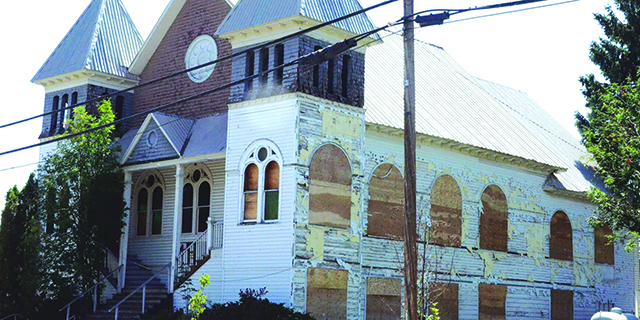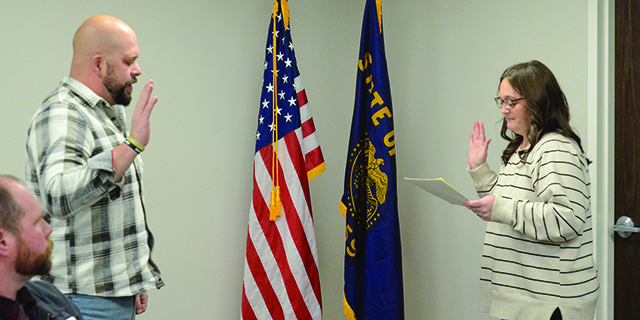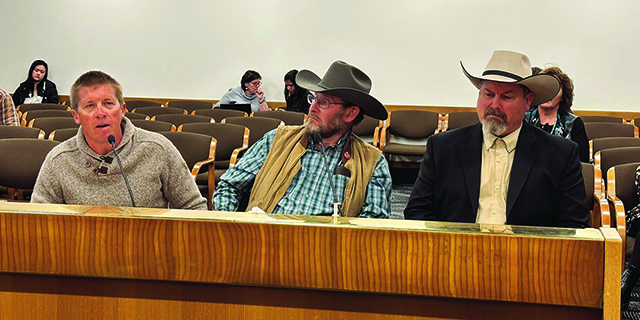POLITICAL PHILOSOPHY
Published 5:00 pm Tuesday, May 21, 2013

- <p>John McColgan</p>
The Second Amendment to the Constitution states: A well regulated Militia being necessary to the security of a free State, the right of the people to keep and bear Arms shall not be infringed.
Unfortunately, the NRA and other gun rights advocates often prefer to quote only the second half of the Second Amendment. By editing out the opening clause, they deprive us of an opportunity to better understand the intentions of the Founding Fathers and the presumptions, context, and implicit limitations of the complete, authentic amendment.
Trending
Because of the grammatical construction that author James Madison employed, where the opening clause of the Second Amendment appears to hang precipitously in front of the latter, declarative half of the sentence, the possible connection between the two halves is wide open to public and legal interpretation. Clearly, our Constitutions framers were expressing the inter-relatedness, and perhaps even the interdependency, of our citizens right to bear arms and our nations ability to defend itself.
One way of unscrambling the logic of the sentence construction might be to say that while the peoples right to keep and bear arms necessarily precedes the formation of a militia, the existence of a militia in turn helps to secure and protect the very rights those people enjoy. Moreover, the words well regulated prior to Militia remind us that the Constitutions framers presumed that citizens were expected to accept responsibilities to their nation as well as some limitations on their individual freedom.
Considering that the first ten amendments to the Constitution the Bill of Rights – were adopted in 1791, perhaps the phrase well regulated Militia was also meant to sound a cautionary note about the dangers posed by an armed citizenry, as witnessed by the vigilante violence unfolding at the time in Europe in the bloody aftermath of the French Revolution.
Its worth noting that the Second Amendment never mentions the word guns. A broad interpretation of the term that Madison chose Arms might include primitive and modern weapons ranging from rocks, knives, spears, bayonets, flintlocks, muskets, pistols, machine guns, assault rifles, hand grenades, cannons, dynamite, pipe bombs, or rocket launchers clear up to chemical, biological, and nuclear weapons.
Is there any Second Amendment advocate out there who thinks that civilians should be allowed to buy, sell, stockpile or transport any or all of these arms without restriction? And if we all can agree that ricin and plutonium should be off limits to everyday citizens, can we move then to rule out rocket launchers and at least discuss assault weapons without getting hysterical about it? And if the motto of the NRA has been, Guns dont kill people; people kill people; wouldnt background checks on people make sense?
Because the opening clause of the Second Amendment pertains to a well regulated militia, the Supreme Court has traditionally held that the right to bear arms is a collective right rather than an individual one. For more than 200 years, until the case of Washington, D.C., vs. Heller in 2008, the Supreme Court refrained from taking a clear stance on this Constitutional issue. To me, this judicial reluctance to call the right to bear arms an individual right seems surprising, since most of us non-lawyers would have simply assumed that this right was both individual and collective. I would argue that even if the Second Amendment did not make the matter clear, then the Ninth and Tenth Amendments which say that rights that are not enumerated in the Constitution or that are not specifically designated to the United States, belong to the people or to the states should have provided a basis for that position.
Trending
On whichever Constitutional basis, the Supreme Court ruled in Heller that the D.C. law banning handguns was too restrictive, and that citizens have an individual right to own guns for purposes such as protecting their homes. However, the court also held that lawmakers retained the right to make reasonable restrictions, such as prohibiting guns to felons or to people with mental illness, or to ban guns in certain sensitive areas such as schools and government buildings.
The Heller decision seems like a step in the right direction, back toward the common sense, balanced approach of the Founding Fathers, which respected both the rights of the people and the security of a free State.
John McColgan writes from his home in Joseph.









